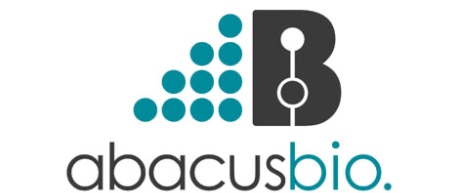Tuesday 19th October 2021, 10:30am
Following a successful year of collaboration, AbacusBio and Bayer have agreed to expand their partnership in the area of predictive plant breeding.

This marks AbacusBio’s largest collaboration to date, which is anticipated to have a far-reaching impact along numerous crop supply chains.
The success of this collaboration has been recognised by the IHS Markit’s Crop Science awards, as a shortlist nominee for 'Best Industry Collaboration' of 2021.
AbacusBio’s leading expertise in prioritisation and valuation of crop attributes to advance Bayer’s products that deliver grower, market, and consumer needs. Moving forward the collaboration will expand row crops across broader geographies and will also include various vegetable crops. Through computational integration of economic, grower preference and socio-demographic data, AbacusBio technology can improve the predictions of how products will meet market needs.
“We know from the first year of the collaboration that the benefits of bringing together AbacusBio’s expertise and Bayer’s wealth of data are significant,” said Dr. Tim Byrne of AbacusBio who has seen first-hand, the benefits farmers stand to gain when science and technology are combined at scale.
“Now, working with Bayer to apply the solutions we are building to a broader range of crops is very exciting.” By gaining insights, Bayer is able to better select and advance products that will help meet grower needs and deliver consumer demands. This is achieved by balancing genetic gain across a combination of product attributes to meet production, quality and sustainability needs in the market, while collaborating closely with all members of the supply chain."
Dr. Tim Byrne, AbacusBioImportantly, and aligned with Bayer’s strategic goals, the collaboration will also focus more deeply on genetic gain for global sustainable farming practices and for smallholder farmers. Excitement amongst both organizations is palpable, as the impact of this work is expected to improve the livelihoods of farmers around the world and allow for improved decision making across the Bayer pipeline.
“Innovation does not happen in a vacuum. Expanding beneficial partnerships, like what we have with AbacusBio, brings together the brightest minds to tackle agriculture’s biggest problems.”
Dr. Mike Graham, Head of Plant Breeding, Bayer Crop Science“We are thrilled to bring some of our vegetable crops into the partnership with AbacusBio.
"Leveraging data and algorithms will help narrow in on product characteristics that are important to growers and consumers today and in the future.”
Dr. J.D. Rossouw, Head of Vegetable Seeds R&D at Bayer Crop ScienceAbacusBio operate from offices in New Zealand and the United Kingdom, delivering world class solutions for clients across the agribusiness world.
In the UK, AbacusBio have been based at Roslin Innovation Centre since 2017 from where the company provides independent services and products to industry organisations, businesses, universities, and investment groups.
Find out more:
AbacusBio applies world class science and technology to improve and enhance the performance, resilience, competitiveness, responsiveness, and profitability of client enterprises.
Bayer is a global enterprise with core competencies in the life science fields of health care and nutrition. Its products and services are designed to help people and planet thrive by supporting efforts to master the major challenges presented by a growing and aging global population. Bayer is committed to drive sustainable development and generate a positive impact with its businesses. At the same time, the Group aims to increase its earning power and create value through innovation and growth. The Bayer brand stands for trust, reliability, and quality throughout the world. In fiscal 2020, the Group employed around 100,000 people and had sales of 41.4 billion euros. R&D expenses before special items amounted to 4.9 billion euros.